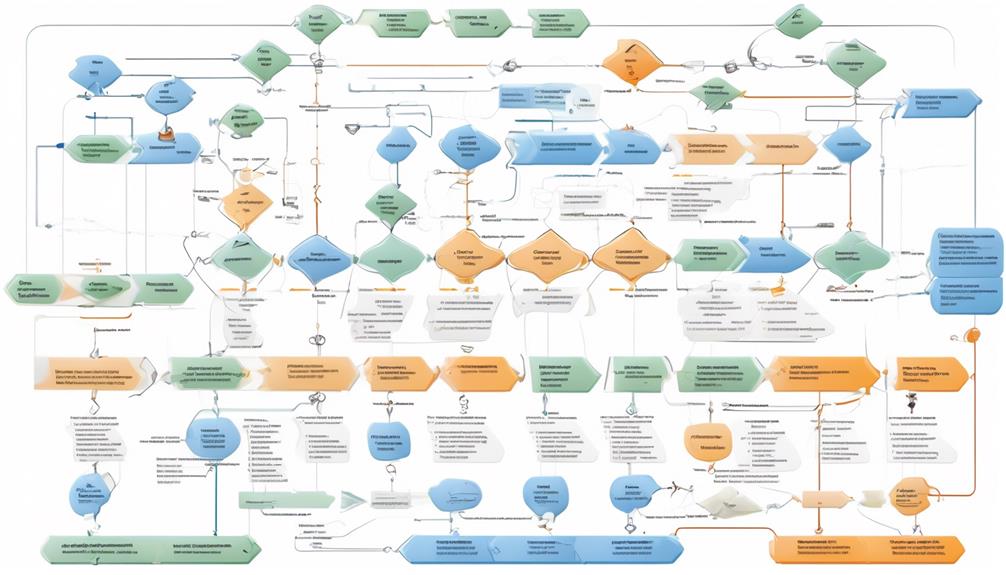As a person who is always seeking ways to enhance my professional skills, I frequently find myself torn between the convenience of online webinars and the hands-on experience of in-person workshops.
SQA's webinars and workshops have been gaining attention lately, and I've been curious to explore the benefits they offer. The opportunity to engage with industry experts and gain insights into topics such as international business etiquette and CAPA program improvement is intriguing, but I wonder how these sessions are structured and what sets them apart from other professional development opportunities.
Key Takeaways
- SQA offers webinars and workshops for professional development in the quality assurance community.
- Webinars cover a wide range of relevant topics and can be accessed through registration and purchasing recordings.
- SQA members have opportunities to present webinars and contribute their expertise.
- Webinars and workshops provide networking opportunities, industry insights, and valuable resources for career enhancement.
Overview of SQA Webinars
Presenting webinars is a valuable method for sharing knowledge and facilitating professional development within the SQA community. SQA's commitment to quality assurance is evident in the comprehensive selection of webinars available. These webinars cover a wide range of topics relevant to the field, such as GCP, GLP, and other essential areas of expertise.
Accessing these webinars is a straightforward process. Once scheduled, registrants receive information on how to join the live sessions. For those unable to attend live webinars, purchased recordings can be accessed through the Webinar Library.
SQA members also have the opportunity to contribute their expertise by presenting webinars. This process involves submitting a Webinar Request Form, which is then reviewed and approved by the SQA Education Committee.
Moreover, SQA offers online training opportunities at reduced rates for its members, thereby enhancing their skills and knowledge in the field of quality assurance.
This commitment to professional development through webinars underscores SQA's dedication to advancing the expertise of its members.
Benefits of Attending Workshops

Attending workshops offers professionals the opportunity to acquire specialized knowledge and skills essential for career growth and advancement within the industry. The benefits of attending workshops are numerous, ranging from skill enhancement to networking opportunities and staying updated with industry trends. Here are some key benefits:
| Benefits of Attending Workshops | Details |
|---|---|
| Professional Development | Workshops provide specialized training and insights. |
| Networking Opportunities | Connect with industry professionals and experts. |
| Industry Insights | Gain knowledge about trends, best practices, and latest developments. |
| Career Enhancement | Enhance prospects and open up new opportunities. |
Attending workshops also allows access to valuable resources, information, and training opportunities relevant to the industry. Additionally, these workshops often offer webinar recordings or online courses, providing the flexibility to revisit and reinforce the knowledge gained. Overall, workshops play a crucial role in professional development, offering a platform to learn, connect, and stay ahead in the industry.
Upcoming SQA Webinars
As I explore the upcoming SQA webinars, it's evident that professionals can continue to gain specialized knowledge and insights, extending the benefits of attending workshops to a broader virtual platform.
The upcoming SQA webinars cover a diverse range of topics, offering valuable insights for SQA members. For instance, the webinar will provide in-depth discussions on the OECD GLP Working Party meeting summary, international business etiquette, computer software assurance, and challenges facing small, novel, or animal-only facilities in meeting GLP compliance.
These webinars are scheduled at different times, and attendees are encouraged to check back for upcoming webinars if none are listed. It's worth noting that information for accessing live webinars is emailed to registrants, and any queries can be directed to courtney.thompson@sqa.org or 434-297-4772.
Additionally, SQA offers reduced rates for online training and professional development options, further enhancing the value of attending these upcoming SQA webinars.
It's important to highlight that webinar presentations should generally be offered to all SQA members and must be approved by the SQA Education Committee before scheduling, ensuring high-quality content and relevance.
Webinar Library Access

I will now discuss the points related to Webinar Library Access.
This will cover how to access webinar recordings, finding relevant workshop materials, and navigating webinar resources.
Accessing Webinar Recordings
To access webinar recordings in the Webinar Library, users can browse and access purchased recordings through My Account, or utilize the Webinar Request Form to present a webinar.
When accessing webinar recordings, users should:
- Log in to My Account to view purchased recordings.
- Use the search or filter options to find specific webinars by year, including 2023, 2022, 2021, 2020, and 2019.
- Contact courtney.thompson@sqa.org or 434-297-4772 for any questions or assistance regarding accessing webinar recordings.
- Consider presenting a webinar by submitting a request through the Webinar Request Form to contribute to the webinar library.
Accessing webinar recordings provides an opportunity to engage with valuable content and contribute to the knowledge base within the SQA community.
Finding Relevant Workshop Materials
In the Webinar Library, finding relevant workshop materials involves navigating through the categorized sections and using search or filter options to locate specific content. The library provides categorized sections for easy navigation, such as Advanced Higher and Higher Course Webinars and Materials covering various subjects like Chemistry, Drama, and Modern Languages.
Additionally, registrants can access purchased webinar recordings through My Account and My Online Courses & Recordings. If specific content isn't readily available, the Webinar Request Form allows for suggesting and presenting webinars, subject to approval by the SQA Education Committee.
SQA Membership offers benefits including reduced rates for online training, professional development options, and networking opportunities with QA professionals, enhancing access to relevant workshop materials. By utilizing the search and filter options, members can efficiently find pertinent webinars and workshops to meet their educational needs.
Navigating Webinar Resources
Upon accessing the webinar library, users can browse through scheduled webinars and access recorded sessions through their user accounts.
Scheduled webinars are listed for easy access, and users can check back for upcoming ones if none are currently listed.
Access information for live webinars is sent via email to registrants, and inquiries can be directed to courtney.thompson@sqa.org or 434-297-4772.
The webinar library allows browsing of recorded webinars and access to purchased recordings through the user's account.
Those interested in presenting a webinar can use the Webinar Request Form, which is open to SQA Committees, Specialty Sections, Regional Chapters, or members. Presentations should generally be offered to all SQA members.
Navigating the webinar resources provides comprehensive access to a range of webinars and workshops, ensuring a wealth of knowledge and opportunities for skill development.
Presenting at Webinars

When preparing to present at webinars, it's crucial to thoroughly review the guidelines and requirements set forth by the SQA Education Committee. As a presenter, it's important to ensure that the content is relevant to the interests and needs of SQA members. The topics should align with the SQA's focus on Higher Health and Food, providing valuable insights and knowledge to the audience.
To initiate the process of presenting a webinar, interested individuals can utilize the Webinar Request Form available on the SQA website. This form serves as the initial step in proposing a webinar presentation to SQA members. Subsequently, the presentation must undergo an approval process by the SQA Education Committee before scheduling. This ensures that the content meets the standards and expectations of the organization.
Furthermore, presenters should be mindful of the audience's expertise and aim to deliver content that's insightful and enriching. By adhering to the guidelines and requirements, presenters can contribute to the continuous learning and development of SQA members, fostering a community of knowledge sharing and growth.
CPD Webinars and Materials

When exploring CPD webinars and materials, it's crucial to consider the range of webinar topics and their schedules to align with professional development needs.
Accessing CPD materials through the Webinar Library allows for continued learning and reference.
Understanding the availability and scope of these resources is essential for maximizing the benefits of SQA membership and advancing in the field of quality assurance.
Webinar Topics and Schedules
The CPD Webinar Topics and Schedules provide a comprehensive overview of upcoming webinars and materials available for SQA members.
Webinars are listed as they're scheduled, and one can check back for upcoming webinars if none are listed.
Information for accessing live webinars is emailed to registrants, and questions can be directed to courtney.thompson@sqa.org or 434-297-4772.
The Webinar Library allows users to browse webinar recordings and access purchased webinar recordings through My Account.
SQA members can use the Webinar Request Form to present webinars, which must be approved by the SQA Education Committee before scheduling.
These resources ensure that members have access to a wide array of topics and schedules, enhancing their professional development in the field of quality assurance.
Accessing CPD Materials
To access CPD materials such as webinar recordings, SQA members can log in to My Account and browse the available resources. Once logged in, members can find a variety of CPD materials related to Higher Fashion and Textile, Health and Food Technology, and other relevant topics. These materials serve as valuable resources for professional development and staying updated with the latest industry trends.
The webinar recordings provide in-depth insights and knowledge sharing from industry experts. Additionally, SQA offers reduced rates for online training and professional development options as benefits of membership, making it even more accessible for members to further their skills and expertise.
Members can also use the Webinar Request Form to propose and present webinars, subject to approval by the SQA Education Committee, further contributing to the pool of CPD materials available.
Understanding Standards – Events Schedule
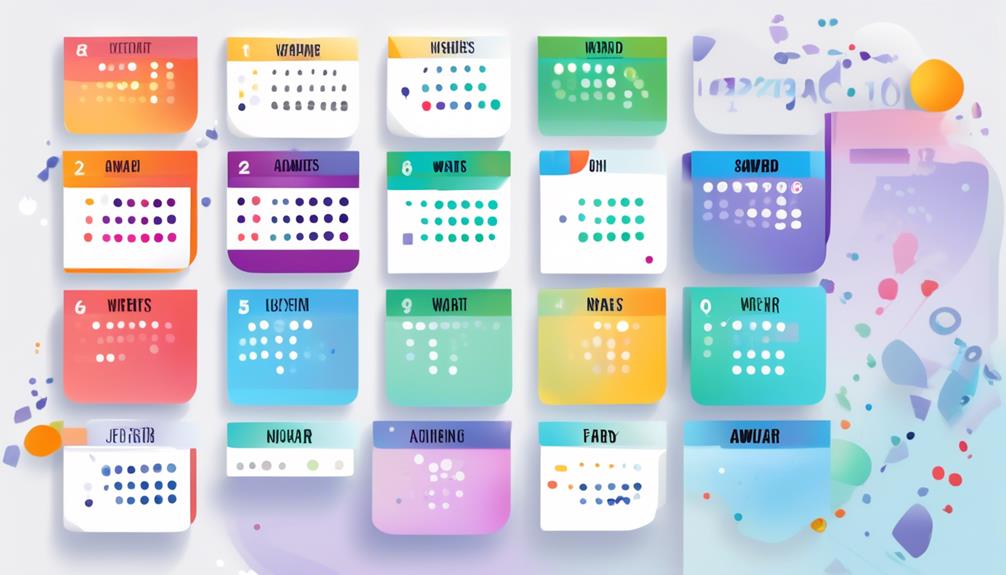
Understanding the schedule of events for the 'Understanding Standards' subtopic is essential for staying informed about upcoming webinars and workshops. The events schedule for the 'Understanding Standards' subtopic includes:
- Webinars are listed as they're scheduled, and upcoming ones can be checked back if none are listed.
- Information for accessing live webinars is emailed to registrants, and questions can be directed to courtney.thompson@sqa.org or 434-297-4772.
- The schedule includes a variety of webinars on topics like OECD GLP Working Party, International Business Etiquette, Computer Software Assurance, and more.
- Interested in presenting a webinar? Use the Webinar Request Form, and note that webinars must be approved by the SQA Education Committee before scheduling.
Staying informed about the events schedule for the 'Understanding Standards' subtopic is crucial for professionals seeking to elevate their expertise in the field of SQA. This schedule provides valuable opportunities for continuous learning and professional development, particularly for those seeking higher proficiency in the Specialty Section. It's important to regularly check the schedule for updates and new offerings to ensure that one can take full advantage of these enriching opportunities.
Events and Webinars Session 2023-24

As we look ahead to the Events and Webinars Session 2023-24, I'm eager to explore the upcoming webinar topics and the strategies for engaging participants.
It's crucial to identify compelling subjects that align with the interests and needs of our audience, ensuring active participation and valuable takeaways.
Upcoming Webinar Topics
What topics will be covered in the upcoming webinars for the Events and Webinars Session 2023-24?
- International Business Etiquette: Understanding cultural nuances and best practices for conducting business internationally.
- Challenges Facing Small Facilities: Addressing compliance with Good Laboratory Practices (GLP) for small, novel, or animal-only facilities.
- Risk-Based Approaches in Quality Management: Implementing risk-based strategies to enhance quality management systems.
- Data Integrity in Regulatory Compliance: Ensuring data integrity and compliance with regulatory requirements in the life sciences industry.
These webinars aim to provide in-depth insights into diverse areas of quality assurance, offering valuable knowledge and skills for professionals in the field.
Registering for these sessions and leveraging SQA membership benefits can enhance professional development and networking opportunities.
Participant Engagement Strategies
In preparing for the Events and Webinars Session 2023-24, our focus now shifts to exploring effective strategies for engaging participants in the upcoming webinars and workshops.
Participant engagement strategies are crucial for creating interactive and valuable learning experiences. To achieve this, we'll utilize various methods such as interactive polls, Q&A sessions, and breakout discussions to encourage active participation.
Additionally, providing downloadable resources and follow-up materials will further enhance engagement and reinforce learning. Leveraging the expertise of presenters and encouraging real-time interaction will be prioritized to ensure the active involvement of participants.
We aim to create a collaborative and inclusive environment where attendees feel motivated to contribute and learn from each other. By implementing these participant engagement strategies, SQA webinars will continue to be enriching and beneficial experiences for all involved.
Available Webinar Topics
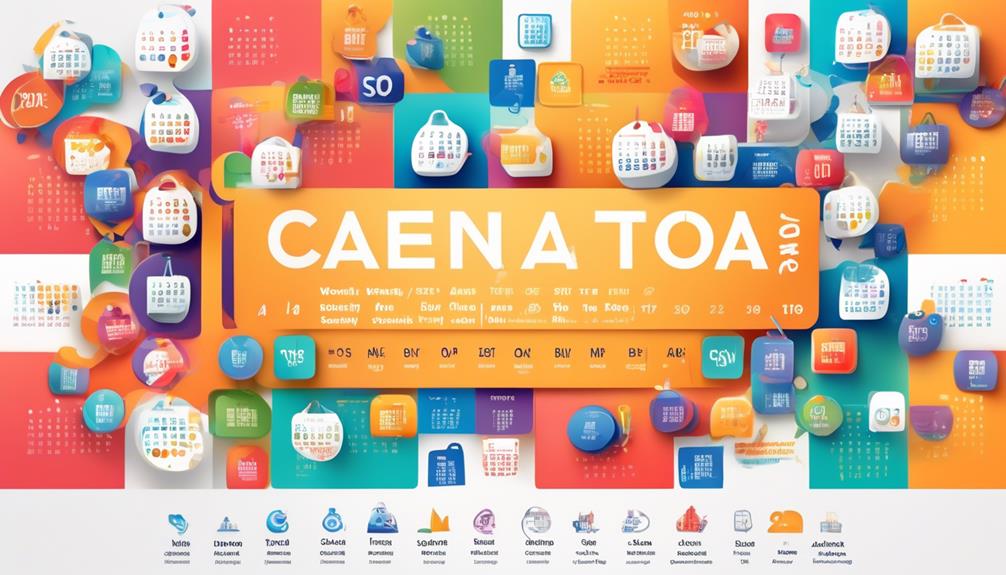
A diverse range of webinar topics is available for access, covering subjects such as OECD GLP Working Party, international business etiquette, computer software assurance, challenges facing small, novel, or animal-only facilities in meeting GLP compliance, and strategies to improve CAPA programs.
- OECD GLP Working Party: This topic delves into the guidelines and principles set forth by the OECD GLP Working Party, providing insights into best practices and compliance requirements.
- International Business Etiquette: Exploring cultural nuances and etiquettes in international business settings, this webinar equips participants with essential knowledge for successful global interactions.
- Computer Software Assurance: Focusing on quality assurance for computer software, this webinar addresses the specific challenges and strategies for ensuring the reliability and effectiveness of software systems.
- Challenges in Meeting GLP Compliance for Small, Novel, or Animal-Only Facilities and Strategies to Improve CAPA Programs: This webinar provides valuable guidance for facilities facing unique challenges in meeting GLP compliance, as well as strategies to enhance Corrective and Preventive Action (CAPA) programs.
These webinars offer invaluable insights and expertise, catering to a wide array of professional development needs. Interested individuals can access these sessions by registering and obtaining relevant information through the provided contact details.
SQA Webinars Schedule
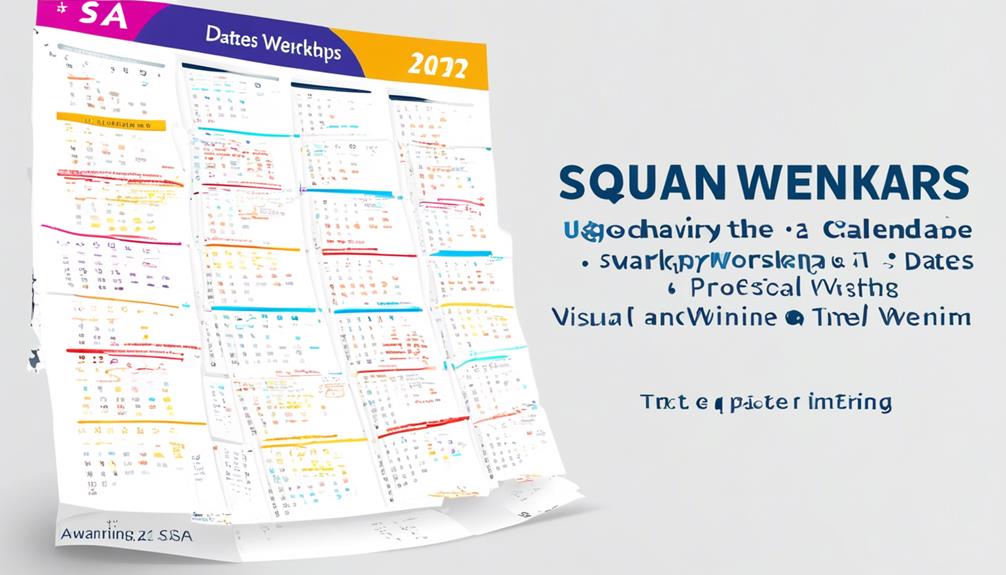
Covering a diverse range of topics, the SQA webinars schedule provides a comprehensive lineup of upcoming sessions and recorded materials for professional development. The schedule includes webinars on international business etiquette, cultural competency for audits and meetings, specific industry-related challenges, and compliance discussions. Both live webinars and recordings are accessible to registrants. The schedule is updated as new webinars are scheduled, and attendees can check back for upcoming sessions. Information for accessing live webinars is sent to registrants via email, and any inquiries can be directed to courtney.thompson@sqa.org or 434-297-4772.
The table below outlines a selection of upcoming webinars in the SQA schedule:
| Date | Time | Topic |
|---|---|---|
| March 15, 2022 | 10am EST | International Business Etiquette |
| April 5, 2022 | 2pm EST | Cultural Competency for Audits and Meetings |
| April 20, 2022 | 11am EST | Industry-Specific Compliance Discussion |
| May 10, 2022 | 3pm EST | Effective Quality Management Strategies |
SQA members are encouraged to submit webinar requests and are offered reduced rates on online training and professional development options. Access to the library of webinar recordings is also provided through registrants' accounts, covering a wide range of subjects.
Webinar Registration Process
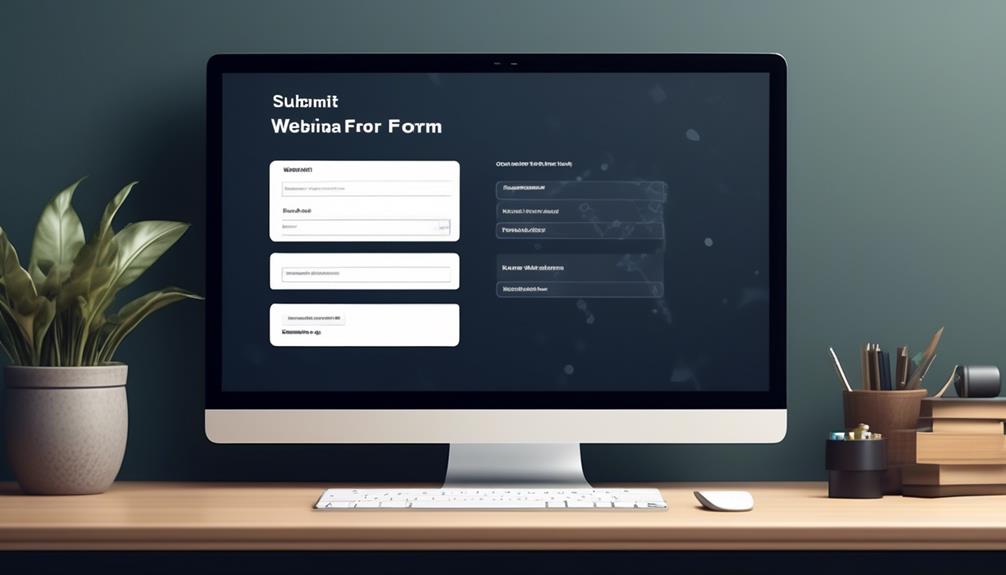
To register for a webinar, visit the SQA website and navigate to the webinar section in My Account. Once there, follow these steps for a seamless webinar registration process:
- Browse Scheduled Webinars: Look through the listed webinars for the topic of interest. If no webinars are currently listed, check back later as new ones are added when scheduled.
- Register for a Webinar: Click on the desired webinar and complete the registration process. For SQA members, there may be reduced rates for webinar attendance, providing an added benefit of membership.
- Access Information: Upon successful registration, information for accessing the live webinar will be emailed to the registrants. Any queries or concerns can be directed to courtney.thompson@sqa.org or by calling 434-297-4772.
- Access Purchased Webinar Recordings: After the webinar, purchased webinar recordings can be accessed through My Account, allowing for review or viewing of missed webinars.
SQA members can take advantage of reduced rates for online training and gain access to valuable professional development opportunities, making the webinar registration process not only informative but also cost-effective.
Published Understanding Standards Resources
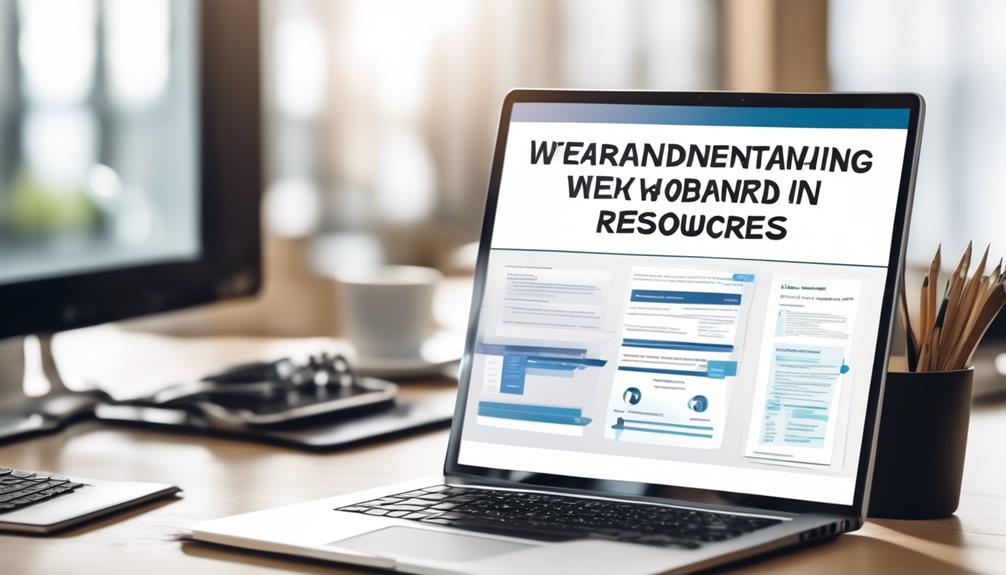
After completing the seamless webinar registration process, SQA members can delve into the wealth of Published Understanding Standards Resources, which provide valuable insights and guidance on various quality assurance topics.
These resources offer in-depth analysis of question paper and performance, candidate evidence, and other critical aspects of quality assurance. They're meticulously crafted to address implementation challenges, provide clarity on misconceptions, and highlight best practices in quality assurance.
Access to these resources is a significant benefit of SQA membership, allowing professionals to stay updated with industry trends and continuously enhance their skills. The materials cover a wide range of subjects, including computer software assurance, CAPA programs, and international business etiquette, catering to the diverse needs of quality assurance professionals.
By utilizing these resources, members can gain a deeper understanding of quality assurance processes and make informed decisions in their roles.
Frequently Asked Questions
What Is the Difference Between a Workshop and a Webinar?
The difference between a workshop and a webinar lies in their formats and objectives.
Webinars primarily focus on information delivery through presentations, while workshops emphasize interactive activities and skill-building.
In webinars, participants typically listen and engage through chat or Q&A, whereas workshops encourage active participation and hands-on learning.
Webinars are convenient for remote learning, while workshops offer a more immersive, collaborative environment for real-time skill application.
What Is the Difference Between a Seminar and a Webinar?
When differentiating between a seminar and a webinar, it's important to focus on the physical versus virtual aspect.
Seminars facilitate in-person interaction, allowing for immediate feedback and networking.
On the other hand, webinars are accessed remotely, often with limited participant interaction.
This distinction impacts the level of engagement and the convenience for participants, making each format suitable for different objectives and preferences.
Is Webinar a Training?
Yes, a webinar can be considered a form of training. It allows for the dissemination of information, instruction, or demonstration of concepts or skills through an online platform.
Webinars are often interactive, enabling participants to ask questions and engage with the material in real time. They're an effective means of delivering training content to a geographically dispersed audience, making them a valuable tool for professional development and learning.
What Is Called Webinar?
A webinar is a live online seminar that allows participants to engage with presenters through interactive features like chat and Q&A. It's a convenient way to access expert knowledge from anywhere with an internet connection.
Typically, webinars cover a specific topic in detail and often include visual aids like slides or video. They provide a valuable platform for learning and professional development without the need for travel or time away from work.
Conclusion
Well, after attending all these SQA webinars and workshops, I can confidently say that I'm now officially an expert in everything. I mean, who needs years of experience and hard work when you can just attend a few webinars, right?
But in all seriousness, these learning opportunities have been incredibly valuable and have helped me gain new knowledge and skills. I'll definitely be signing up for more in the future.
At the helm of our content team is Amelia, our esteemed Editor-in-Chief. Her extensive background in technical writing is matched by her deep-seated passion for technology. Amelia has a remarkable ability to distill complex technical concepts into content that is not only clear and engaging but also easily accessible to a wide range of audiences. Her commitment to maintaining high-quality standards and her keen understanding of what our audience seeks are what make her an invaluable leader at EarnQA. Under Amelia’s stewardship, our content does more than just educate; it inspires and sets new benchmarks in the realm of QA education.

